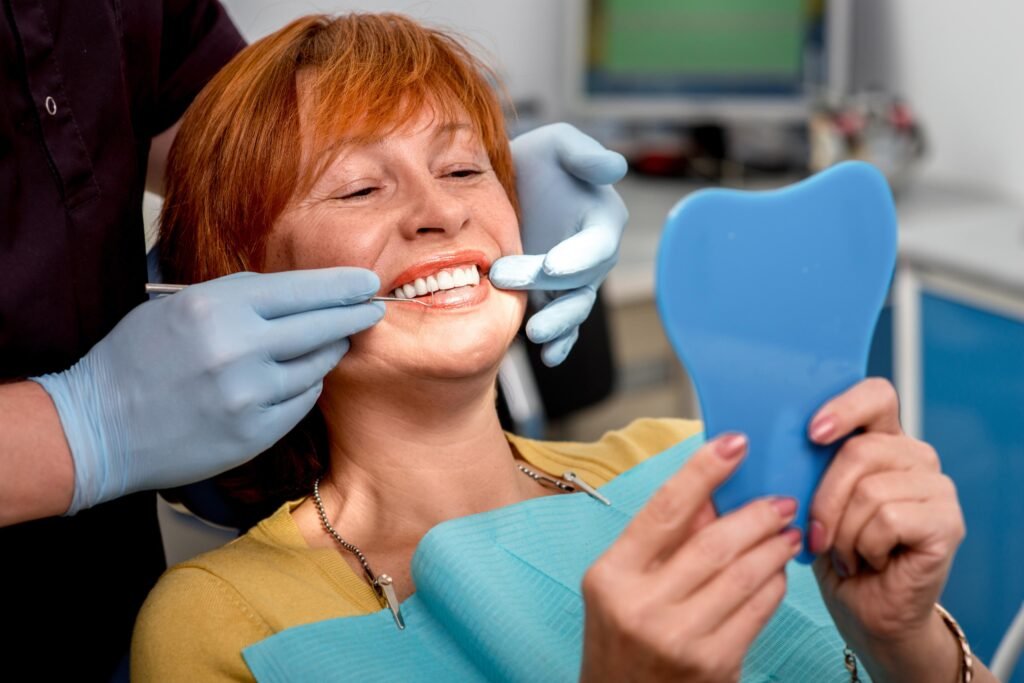Home ⇒ Dentures
Dentures, also known as dental prosthetics, are removable appliances designed to replace missing teeth and surrounding tissues. They can restore functionality, improve aesthetics, and provide support to facial muscles. Dentures are custom-made to fit the individual’s mouth and are typically made from acrylic resin or a combination of materials. There are two main types of dentures: complete dentures and partial dentures.
Full or Complete Dentures:
Immediate Dentures:
Partial Dentures:
Flexible Partial Dentures:
Initial Consultation:
Impressions:
Design and Fabrication:
Fitting and Adjustments:

While dentures provide an effective solution for replacing missing teeth, it may take some time for individuals to adjust to wearing them. Good oral hygiene practices, regular check-ups, and proper care are essential for maintaining the longevity and functionality of dentures. Some individuals may explore implant-supported dentures, where dental implants are used to anchor the dentures for increased stability. Consulting with a dentist can help determine the most suitable denture option based on individual needs and preferences.

Copyright © 2023 sarita sublok dental All Right Reserved. Designed by 